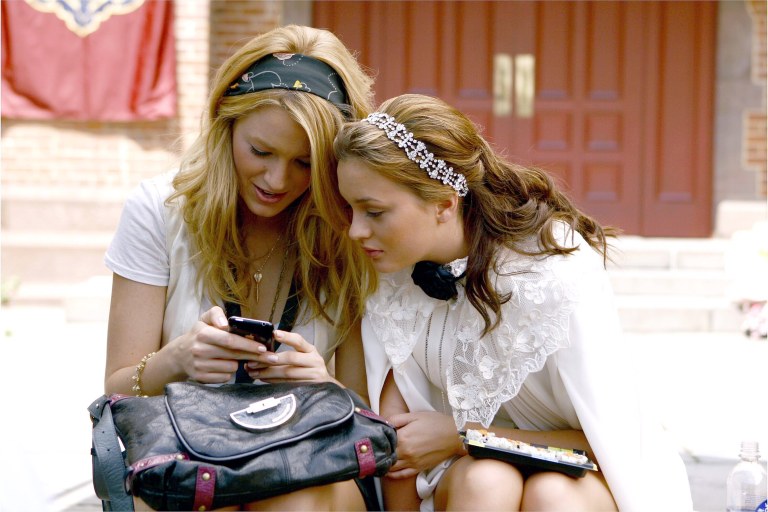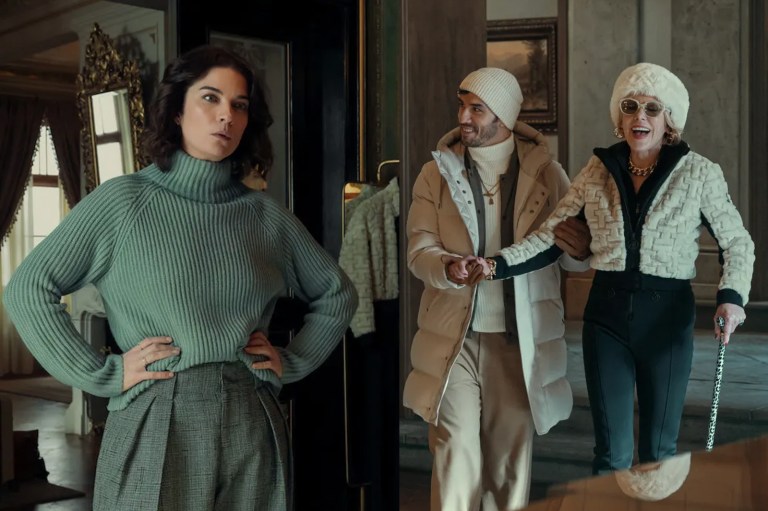
How To Ruin Your Life In 14 Minutes
In today’s world, thanks to YouTube and Internet search engines, their remarks will be remembered by thousands if not millions of people for the rest of their lives -- and possibly for even longer than that. Indeed, social media gives new meaning to Mark Antony’s line in Julius Caesar: “The evil that men do lives…
Recently, two teenage girls in Gainesville, Florida made a video (note: NSFW) in which they spewed a truckload of racist comments. They posted the video on YouTube and subsequently ruined their lives. It took all of fourteen minutes. (Actually, probably twenty, if you account for the time it took to upload the video.) When the video went viral, these girls’ lives changed radically — and not for the better. They have received numerous death threats, have been forced to drop out of the high school they’d been attending, and have become the latest poster children for social media stupidity. (As of this writing, at least one of the girls has publicly apologized for her remarks.) These are just the immediate repercussions. What consequences they will face in the future remains to be seen. But one thing is certain: it will be a long time before these girls can escape the shadow cast by this regrettable and truly disastrous #socialmediafail.
Condemning these two girls seems redundant at this point (the video and the vicious ignorance it displays speak for themselves), and although I’m African-American, I’m not compelled to expend too much energy criticizing their racist remarks. However, as an online content creator, a former YouTube employee during its formative years, and a social media professional and enthusiast, I am compelled to use this incident as a springboard for having a serious discussion about the role of ethics in social media.
In just the last few years, social media has created a new generation of super-empowered individuals. We are now able to broadcast our ideas, our images, our videos, and our opinions like never before. It has increased both the size of our potential audiences and the speed with which we can reach those audiences. It’s given us the tools to support charitable causes, to speak out against questionable business practices, to chastise our political leaders, and to launch social movements that can potentially change the world.
It has also given us the tools to ruin lives — both our own as well as others.
Apart from reminding us that racism is still alive and well in the Obama Era, these Gainesville girls also remind us just how easy it is to commit reputation self-sabotage in the Social Media Era. Just ten years ago, their racist remarks would have been remembered by perhaps only a handful of their friends and classmates (since, obviously, they wouldn’t have been able to broadcast them so easily). In today’s world, thanks to YouTube and Internet search engines, their remarks will be remembered by thousands if not millions of people for the rest of their lives — and possibly for even longer than that. Indeed, social media gives new meaning to Mark Antony’s line in Julius Caesar: “The evil that men do lives after them;/ The good is oft interred with their bones.”
With that in mind, I believe it’s high time to engage in a broad and serious conversation about social media ethics. Some of these conversations are already taking place, but they tend to be confined to the business sphere. Either they approach the subject from a legal standpoint (i.e., how can a businesses/corporation best protect itself from embarrassment or liability?), or from a social media professional’s standpoint (i.e., what polices should social media professionals adopt when engaging with customers and audiences?).
I think we need to broaden the conversation, so that it includes more than just lawyers and social media experts. It should include educators, teachers, artists, parents, young people, as well as professionals in the public and private sectors — in short, anyone who uses or is affected by social media (which at this point means everyone). The goal of this conversation should be to highlight the new challenges we now face in the Social Media Era, and to come up with useful guidelines that will hopefully help us make better decisions when it comes to the things we choose to broadcast and post online.
Here are 5 key points that I think social media ethics needs to address:
1. In social media, there is no difference between public and private. Once upon a time — like, back in 2007 — there used to be quite a difference between the things we considered private and those we considered public. And according to the law, privacy narrowly defined is still a constitutionally protected right. But unfortunately, in the Social Media Era, this difference between public and private is quickly disappearing. And while you can rail against this reality, and even work to change it, the first rule of living and engaging in an online world should be to assume that anything you publicly post online could potentially be seen by the world at large. This “world” includes your current friends, your future employers, your past romantic partners, your competitors — and yes, even your mother.
2. Just because you can post something doesn’t mean you should. Freedom of speech — along with privacy, another constitutionally protected right — doesn’t necessarily guarantee freedom of consequence. And this is nowhere more true than in the social media landscape. Celebrities have lost high-paying endorsements after posting one foolish tweet. Activities like “sexting” have destroyed relationships and ruined careers. In social media, twenty seconds can cost you twenty years. Indeed, while more research still needs to be done to prove this, I suspect that the ease and speed with which people can broadcast their messages via social media sometimes short-circuits our inner ethical inhibitions (which, incidentally, also happens when we’re drunk), so that it’s only after the fact that we think to ourselves: Uh oh — perhaps I shouldn’t have posted that. In light of how fast we can broadcast our messages, and how long those messages can affect our lives, we need to be more careful in exercising better ethical judgment before clicking “post.” Not to the point where we become terrified of offending anyone — trust me, you’ll always manage to offend someone, best intentions aside — but at least where we can be reasonably sure that we’re not doing something that, once we’re ethically “sober” again, we won’t entirely regret.
3. Your online and offline selves might not be identical, but they’re joined at the hip. Let’s say you work as a third-grade teacher by day, but then write erotica fiction on your personal blog by night. The school you work for finds out and they decide to fire you. Naturally, you protest. Shouldn’t you be able to do both, you argue, since one is your offline self and the other is your online persona? Answer: well, in a perfect world, you should be able to do both, especially if you’ve created some distance between your offline and online selves (a different username, for instance). But the reality is, like the difference between public and private, the distance between our offline and online selves is quickly disappearing as well. Unless you take considerable precautions to protect your online identity, your online self is now married to your offline self — and it’s hard to get a divorce. So before we post anything online, publicly or privately, we should always be mindful of the kind of online identity we’re creating, since it will definitely affect our offline possibilities. (And I don’t say any of this in the abstract. I have a rather extensive online identity myself, one which probably won’t get me hired at a conservative think tank in D.C. anytime soon. Ah, well.
4. Will what I post cause harm to others? There’s no doubt social media increases our opportunities to do good — in part by making it easier to do good. (Let’s be honest, tweeting a good cause isn’t much of a sacrifice.) But while social media can often trigger the better angels of our nature — inspiring us to tweet good causes and “like” inspirational articles — it can just as often trigger the Lucifier Impulse. That is, people on social media platforms are quicker to post things of a cruel and judgmental nature than they would if they were face-to-face with the person/people they’re talking about. Whether they post anonymously or not, they nonetheless feel protected by the buffer that social media platforms create between themselves and their chosen target. Consequently, before posting something online, we should routinely ask the question: if I weren’t protected by this social media buffer, would I post this? Am I simply being cruel or unnecessarily judgmental? Would I say this to the person’s face if he or she were standing right in front of me? My guess is, if people actually started applying this rule to their online behavior, the quantity of content posted online would decrease considerably. And the quality of the content would vastly improve.)
5. Finally, call it the Social Media Golden Rule: post about others as you would have them post about you. This doesn’t mean that you should have nothing but kind things to say about people, let alone pay false compliments to people you dislike. By all means speak your mind, voice your opinions, live by your convictions. But be prepared for people to speak their minds and voice their opinions when it comes to you — and be willing to take the heat. I believe our online conversations would be a lot more productive and a lot more civil if only we practiced this simple yet hard-to-follow piece of advice. This isn’t about protecting your job or your online reputation or the company you work for, although by adhering to this principle you’d probably protect all three. Rather, this is about extending common decency, and ensuring that your online self behaves just as ethically as your offline self would, if not more so.
Needless to say, this is just the beginning of a larger and much deeper conversation. Some of these points might seem obvious, or like plain common sense. But as my mother is fond of saying, “common sense isn’t common.” And it seems to me that unless we start engaging in a serious, common sense-based conversation about the ethics of our online selves, we will continue to see bright, talented people ruin — or at least severely damage — their lives, their careers, and their futures, not because they’re bad people, but because they unfortunately clicked on the “post” button a little too soon.
_____
P.S. – I’d love to hear your thoughts about this, so if you have an opinion, please share. Feel free to expand on my points, or even challenge them, but please try to observe the Social Media Golden Rule. It’ll make the conversation a lot more productive. Not to mention civil. ![]()











